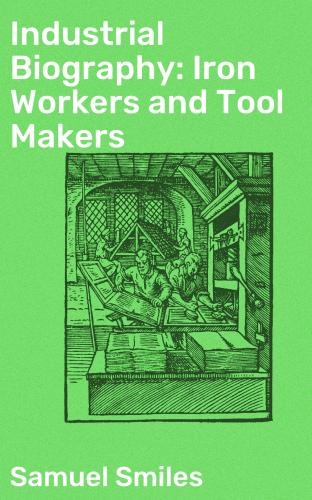CHAPTER VIII.
THE SCOTCH IRON MANUFACTURE—Dr. ROEBUCK—DAVID MUSHET.
Dr. Roebuck, a forgotten public benefactor
His birth and education
Begins business as a physician at Birmingham
Investigations in metallurgy
Removes to Scotland, and begins the manufacture of chemicals, &c.
Starts the Carron Iron Works, near Falkirk
His invention of refining iron in a pit-coal fire
Embarks in coal-mining at Boroughstoness
Residence at Kinneil House
Pumping-engines wanted for his colliery
Is introduced to James Watt
Progress of Watt in inventing the steam-engine
Interviews with Dr. Roebuck
Roebuck becomes a partner in the steam-engine patent
Is involved in difficulties, and eventually ruined
Advance of the Scotch iron trade
Discovery of the Black Band by David Mushet
Early career of Mushet
His laborious experiments
His inventions and discoveries in iron and steel, and death
CHAPTER IX.
INVENTION OF THE HOT BLAST—JAMES BEAUMONT NEILSON.
Difficulty of smelting the Black Band by ordinary process until the
invention of the hot blast
Early career of James Beaumont Neilson
Education and apprenticeship
Works as an engine-fireman
As colliery engine-wright
Appointed foreman of the Glasgow Gas-works; afterwards manager
and engineer
His self-education
His Workmen's Institute
His experiments in iron-smelting
Trials with heated air in the blast-furnace
Incredulity of ironmasters
Success of his experiments, and patenting of his process
His patent right disputed, and established
Extensive application of the hot blast
Increase of the Scotch iron trade
Extraordinary increase in the value of estates yielding Black Band
Scotch iron aristocracy
CHAPTER X.
MECHANICAL INVENTIONS AND INVENTORS.
Tools and civilization
The beginnings of tools
Dexterity of hand chiefly relied on
Opposition to manufacturing machines
Gradual process of invention
The human race the true inventor
Obscure origin of many inventions
Inventions born before their time
"Nothing new under the sun"
The power of steam known to the ancients
Passage from Roger Bacon
Old inventions revived
Printing
Atmospheric locomotion
The balloon
The reaping machine
Tunnels
Gunpowder
Ancient firearms
The steam gun
The Congreve rocket
Coal-gas
Hydropathy
Anaesthetic agents
The Daguerreotype anticipated
The electric telegraph not new
Forgotten inventors
Disputed inventions
Simultaneous inventions
Inventions made step by step
James Watt's difficulties with his workmen
Improvements in modern machine-tools
Their perfection
The engines of "The Warrior"
CHAPTER XI.
JOSEPH BRAMAH.
The inventive faculty
Joseph Bramah's early life
His amateur work
Apprenticed to a carpenter
Starts as cabinet-maker in London
Takes out a patent for his water-closet
Makes pumps and ironwork
Invention of his lock
Invents tools required in lock-making
Invents his hydrostatic machine
His hydraulic press
The leathern collar invented by Henry Maudslay
Bramah's other inventions
His fire-engine
His beer-pump
Improvements in the steam-engine
His improvements in machine-tools
His number-printing machine
His pen-cutter
His hydraulic machinery
Practises as civil engineer
Altercation with William Huntington, "S.S."
Bramah's character and death
CHAPTER XII.
HENRY MAUDSLAY.
The Maudslays
Henry Maudslay
Employed as powder-boy in Woolwich Arsenal
Advanced to the blacksmiths' shop
His early dexterity in smith-work
His "trivet" making
Employed by Bramah
Proves himself a first-class workman
Advanced to be foreman of the works
His inventions of tools required for lock-making
His invention of the leathern collar in the hydraulic press
Leaves Bramah's service and begins business for himself
His first smithy in Wells Street
His first job
Invention of the slide-lathe
Resume of the history of the turning-lathe
Imperfection of tools about the middle of last century
The hand-lathe
Great advantages of the slide rest
First extensively used in constructing Brunel's Block Machinery
Memoir of Brunel
Manufacture of ships' blocks
Sir S. Bentham's specifications
